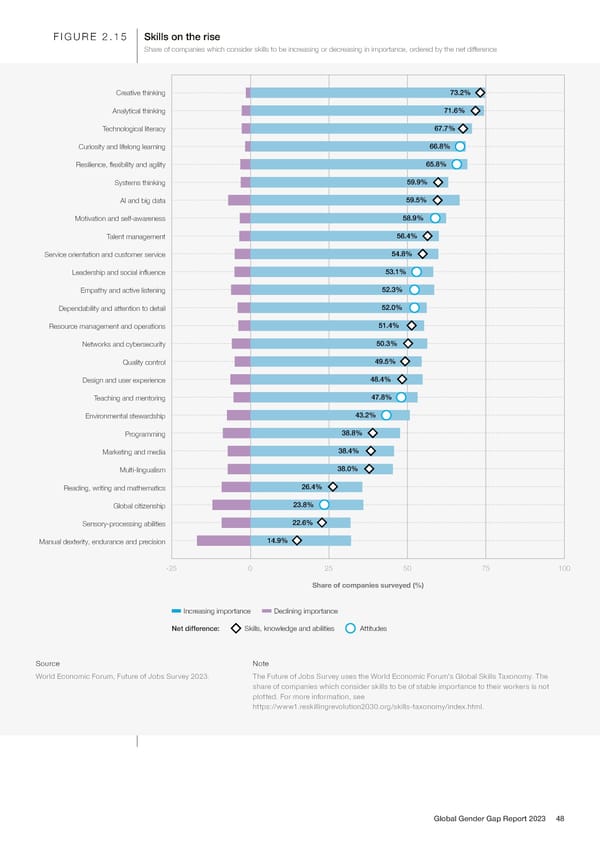FIGURE 2.15 Skills on the rise Share of companies which consider skills to be increasing or decreasing in importance, ordered by the net difference Creative thinking 73.2% Analytical thinking 71.6% Technological literacy 67.7% Curiosity and lifelong learning 66.8% Resilience, flexibility and agility 65.8% Systems thinking 59.9% AI and big data 59.5% Motivation and self-awareness 58.9% Talent management 56.4% Service orientation and customer service 54.8% Leadership and social influence 53.1% Empathy and active listening 52.3% Dependability and attention to detail 52.0% Resource management and operations 51.4% Networks and cybersecurity 50.3% Quality control 49.5% Design and user experience 48.4% Teaching and mentoring 47.8% Environmental stewardship 43.2% Programming 38.8% Marketing and media 38.4% Multi-lingualism 38.0% Reading, writing and mathematics 26.4% Global citizenship 23.8% Sensory-processing abilities 22.6% Manual dexterity, endurance and precision 14.9% -25 0 25 50 75 100 Share of companies surveyed (%) Increasing importance Declining importance Net difference: Skills, knowledge and abilities Attitudes Source Note World Economic Forum, Future of Jobs Survey 2023. The Future of Jobs Survey uses the World Economic Forum's Global Skills Taxonomy. The share of companies which consider skills to be of stable importance to their workers is not plotted. For more information, see https://www1.reskillingrevolution2030.org/skills-taxonomy/index.html. Global Gender Gap Report 2023 48
 Global Gender Gap Report 2023 Page 47 Page 49
Global Gender Gap Report 2023 Page 47 Page 49